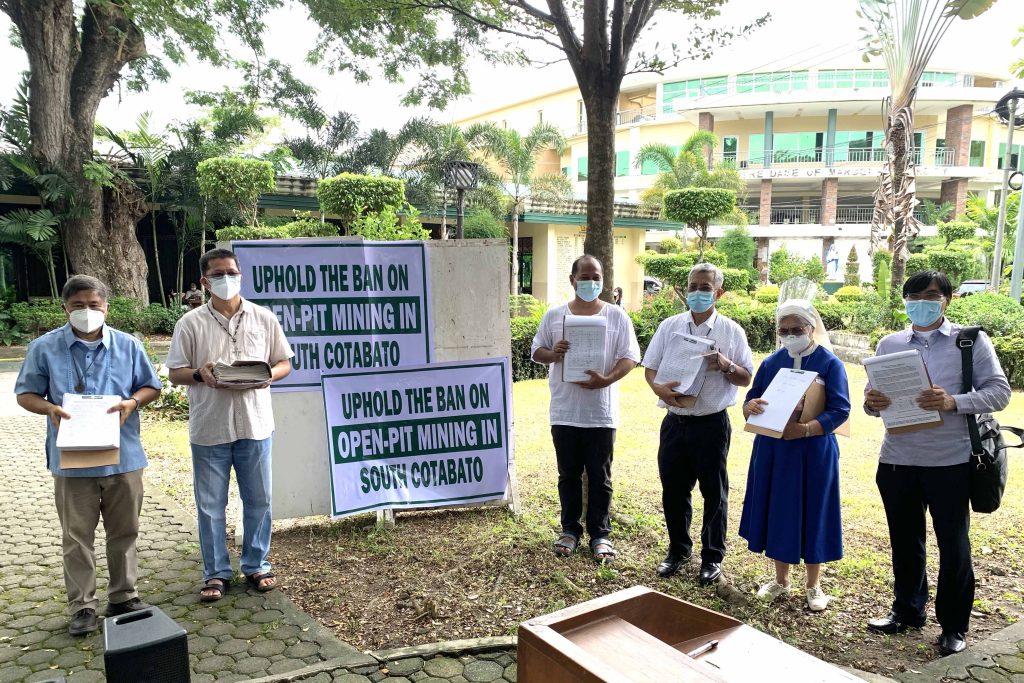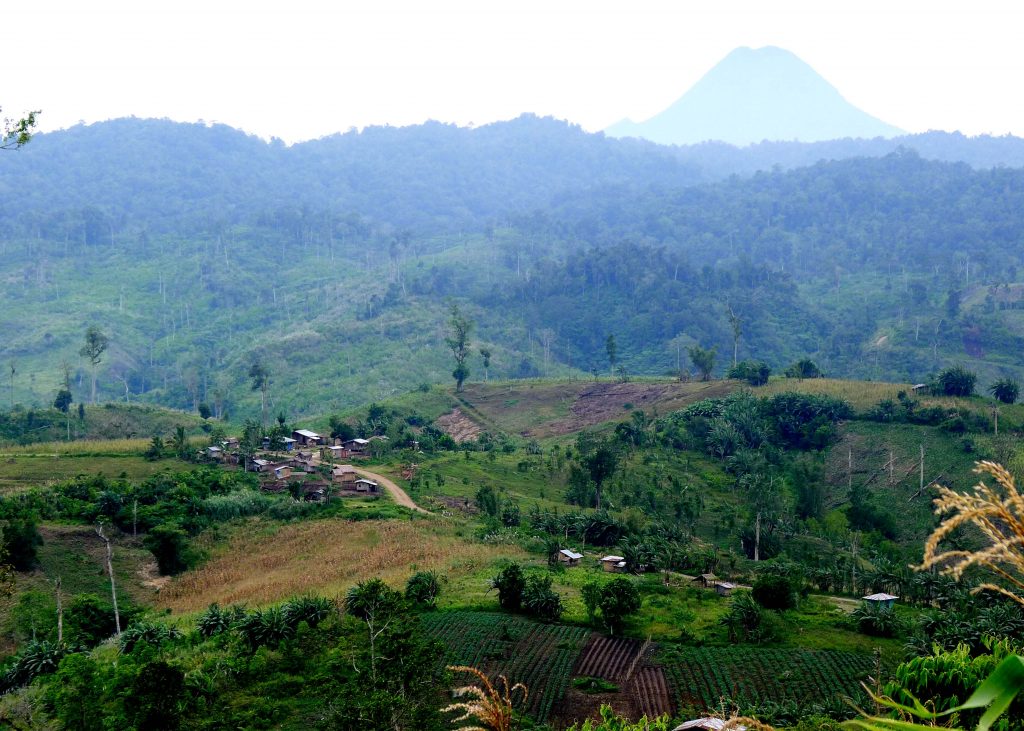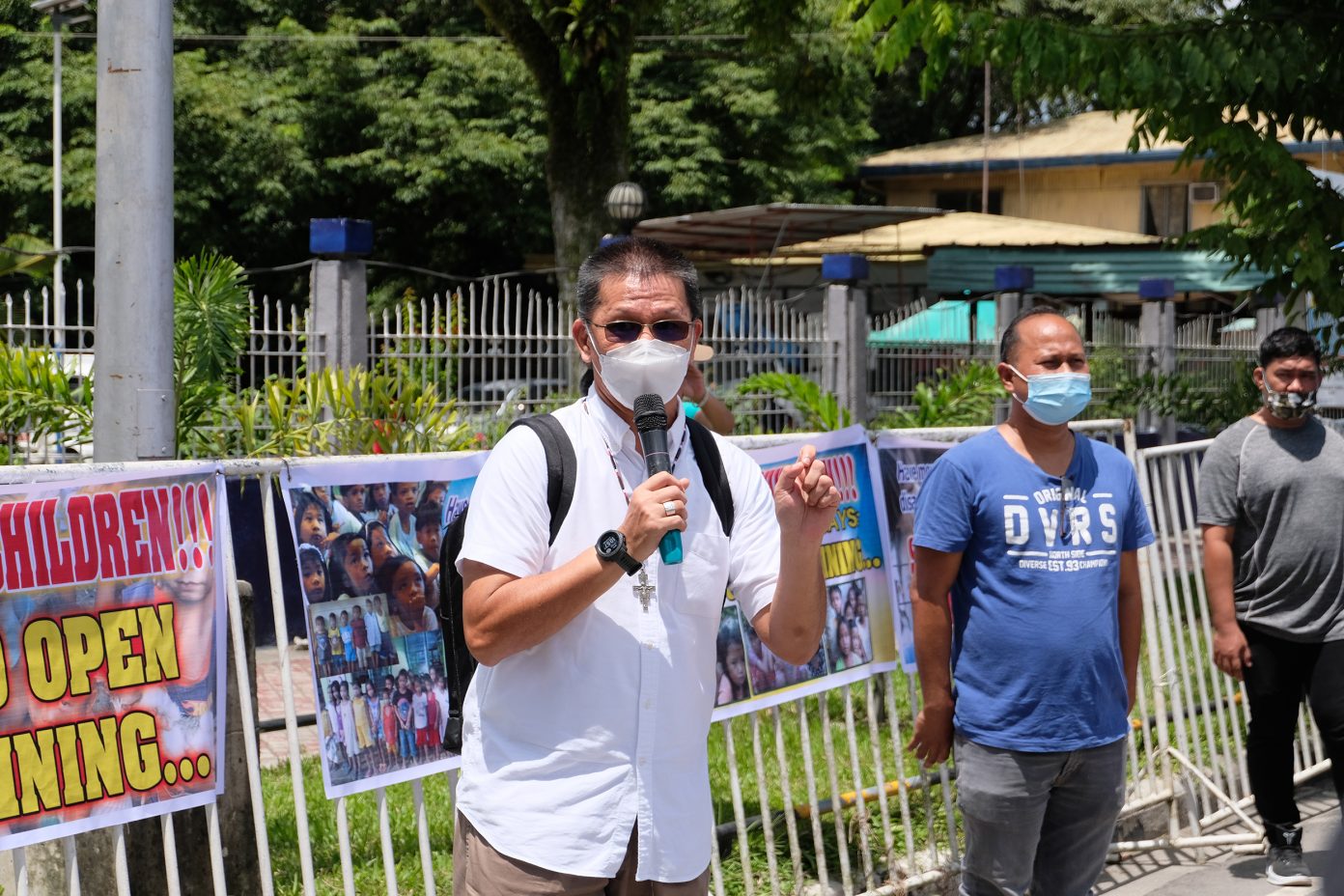A Catholic bishop in the southern Philippines said the fight against open-pit mining is not yet over despite the decision of the local government to veto a measure that proposed to remove the ban on the controversial mining practice.
“We remain vigilant until the present threat to amend the lifting of the open-pit mining ban is completely done,” said Bishop Cerilo Casicas of Marbel in a media briefing on Friday, June 3, following the veto of a measure that would have allowed open-pit mining in South Cotabato province.
“As we give a big sigh of relief, we are fully aware that the battle for environmental protection and against open-pit mining methods in South Cotabato is not over,” said the prelate.
Bishop Casicas appealed to local officials “not to override the veto” issued by Governor Reynaldo Tamayo Jr. of South Cotabato and not to allow themselves to be carried away by business and political pressures.
“I hope people see the hand of God at work,” said Bishop Casicas who turned emotional during the media briefing. “I hope we see that this is a blessing, that we are not forsaken,” he said.
In a statement, Caritas Philippines, the social action arm of the Philippines’ Catholic bishops’ conference, welcomed what it described as “the discerning decision” of Tamayo.
“With so much respect, we congratulate the faithful of South Cotabato, led by the Diocese of Marbel, the indigenous people’s groups, farmers, irrigators, and other stakeholders, for standing for ecological integrity, and for holding government officials accountable for their duty to the people and environment of South Cotabato,” read Caritas Philippines’ statement.
The group thanked Tamayo “for listening to and respecting the voice of the people, and for upholding the rights of the Tampakan ecosystem against future destruction.”
Caritas Philippines also commended “the urgent response for solidarity support” of 48 bishops and the social action network to the Diocese of Marbel, especially the personal letters sent by several Mindanao dioceses to their governors to urge Tamayo to veto the ordinance.
“This is a victory we all will celebrate with the people of South Cotabato,” said the group, even as it vowed to “continue to be vigilant and put more lobbying pressure” on the local government of South Cotabato “for we know the fight for Tampakan is not yet over.”

‘Victory of the people’
Anti-mining activist groups also welcomed Tamayo’s decision, calling it a “victory of the people” of South Cotabato and “the correct move” of the governor in protecting the right of his constituents to “a safe ecology and promoting the comfort and welfare of a majority of the affected communities.”
The group Alyansa Tigil Mina or Alliance to Stop Mining said it “welcomes the rightful decision” of the governor to veto Ordinance N0. 23, Series of 2022, that was enacted by the Provincial Board of South Cotabato on May 16, 2022.
The ordinance amended the Provincial Environment Code of South Cotabato and lifted the ban on open-pit mining in the province.
In his veto letter, Tamayo said the proposed measure is “prejudicial to the public welfare and inimical to the overall interest” of people in South Cotabato.
“I could not find any compelling reason why the [Provincial Board] would amend a decade-old ordinance that ably and effectively protect the people ofSouth Cotabato from the ill effects of the wanton destruction of our God-given resources by the multinational corporations,” he said.
“Time and time again, it is always stressed that the province’s holistic development is anchored first and foremost on its people,” he added.
Rodne Galicha of Living Laudato si’ Philippines said the governor’s decision “gives temporary relief” to the people.
“But it is not only about the will of the people, it is a personal and collective moral choice. Any decision that favors the environment and the people is just and moral,” he said.
Tamayo, however, said earlier that a veto of the board’s resolution to lift the open-pit mining ban is not an assurance that the Tampakan mining project of Sagittarius Mines Inc. will not operate.
“With or without a veto, their large-scale mining operation can proceed because the local government is not the one giving them the permit. They have obtained a permit from the national government,” the governor told reporters on Wednesday, June 1.
He said a national law — the Philippine Mining Act of 1995 that allows the open-pit mining method — supersedes local legislation — a 12-year-old landmark environment code of the province of South Cotabato that prohibits open-pit mining.
On May 16, majority of the members of the Provincial Board approved the amendment of the environment code that lifted the ban on open-pit mining.
The lifting of the ban has removed the final regulatory obstacle for a long-delayed copper and gold project in the province.

Tampakan mines in Mindanao
The Tampakan project on Mindanao island has been described by its developer Sagittarius Mines as “one of the largest undeveloped copper-gold deposits in the world.”
It was previously estimated to cost US$5.9 billion and was due to start operation in 2016.
But the project has faced numerous problems, including the local government’s 2010 ban on open-cast mining and opposition from church, community and environmental groups.
Sagittarius, which is headquartered in South Cotabato and is a government contractor, had already obtained the necessary certification from the National Commission on Indigenous Peoples and agreement from the indigenous community.
Open-pit mining directly extracts minerals on the ground and differs from other methods that require tunneling or underground mining.
The Philippines is one of the world’s biggest suppliers of nickel ore and is also rich in copper and gold, but the government estimates 95 percent of its mineral resources remain untapped.
Mining revenues contribute less than one percent of GDP to the economy, according to the latest available government data.
A nationwide ban on open-pit mines was lifted last year in a bid to revitalize the country’s coronavirus-battered economy.
It was imposed in 2017 when the then-environment minister blamed the sector for widespread ecological damage.
Manila has since reversed course, encouraging mining investments to shore up government revenues as lockdowns and quarantine restrictions ravaged the economy.
In April 2021, President Rodrigo Duterte — who had previously threatened to shut down the sector completely — lifted a nine-year ban on new mining deals set by his predecessor following public backlash over a series of devastating accidents. – with a report from Agence France Presse







